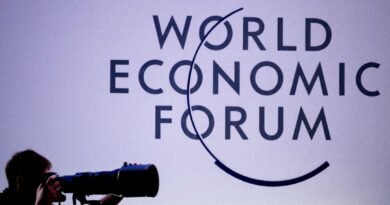Minister Rejects Blair’s Proposal for Digital ID System
Business Secretary Jonathan Reynolds has stated that digital ID cards are not included in the government’s plan, following Sir Tony Blair’s suggestion to use them for immigration control.
A minister has confirmed that the introduction of digital ID cards will not happen after former Prime Minister Tony Blair recommended their use for controlling immigration under the new government.
Business Secretary Jonathan Reynolds emphasized that it is not part of the government’s strategy, noting that Home Secretary Yvette Cooper will consider “all sources of advice” on the matter.
Just one day after Labour’s significant electoral win with minimal voting share growth, Sir Tony expressed his views, stating that the government “requires a plan to manage immigration,” among other things.
“During my time in office, I believed that a system of identity was the most effective solution to accurately determine who has the right to be here,” stated the former Labour prime minister.
During his first studio tour as a government minister on Sunday, Mr. Reynolds was asked about Sir Tony’s proposal, initially without a definitive response.
“The new home secretary will take into consideration all advice sources on this matter,” stated the new business secretary on Sky News’s “Sunday Morning With Trevor Phillips” program.
“However, we have supported the points-based immigration system and made tough decisions, especially when addressing what we deemed excessive legal migration that needed to be reduced,” he added.
Upon further inquiry about ID cards, he mentioned, “My colleague Yvette Cooper and the home affairs team will be exploring various possibilities.”
“I won’t speculate on what they may or may not choose to do,” he continued.
He later dismissed the idea of implementing ID cards, stating on Times Radio, “We can confirm that it is not part of our agenda.”
Earlier on Sky News, Mr. Reynolds also refuted claims that Labour lacked a plan for immigration control, citing several commitments the party had made to decrease legal migration.
Discussing his responsibility for business and trade, the minister suggested that the UK could strengthen ties with the EU by eliminating trade obstacles for food and agricultural products with shared quality standards, acknowledging each other’s professional qualifications, and facilitating movement in the creative industries.
Additionally, in his article, Sir Tony recommended that the government should “steer clear of any vulnerabilities related to ‘wokeism.'”
PA Media contributed to this report.





